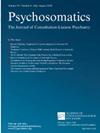Trier Social Stress Test Elevates Blood Pressure, Heart Rate, and Anxiety, But a Singing Test or Unsolvable Anagrams Only Elevates Heart Rate, among Healthy Young Adults
IF 3.4
Q2 Medicine
引用次数: 2
Abstract
The Trier Social Stress Test (TSST) is a psychosocial stressor that effectively stimulates the stress response but is labor and time intensive. Although other psychological stressors are often used experimentally, none are known to comparably elevate stress. Two stressors that may potentially elevate stress are a singing task (ST) and unsolvable anagrams, but there are not enough data to support their effectiveness. In the current experiment, 53 undergraduate males and females (mean age = 21.9 years) were brought into the laboratory, and baseline blood pressure, heart rate, self-rated anxiety, and salivary cortisol were recorded. Then, participants were randomly assigned to one of three stress conditions: TSST (n = 24), ST (n = 14), or an unsolvable anagram task (n = 15). Stress measures were taken again after the stressor and during recovery. The TSST significantly elevated systolic blood pressure, diastolic blood pressure, heart rate, and self-rated anxiety from pre-stress levels, replicating its stress-inducing properties. However, the ST and unsolvable anagrams only elevated heart rate, indicating that these methods are not as able to stimulate physiological or psychological stress. Overall, results indicate that out of these three laboratory stressors, the TSST clearly engages the stress response over the ST or unsolvable anagrams.特里尔社会压力测试提高血压、心率和焦虑,但唱歌测试或无法解决的字谜只会提高健康年轻人的心率
特里尔社会压力测试(TSST)是一种有效刺激应激反应的社会心理压力源,但需要耗费大量的劳动和时间。虽然其他的心理压力源经常被用于实验,但没有一种已知的可以相对地提高压力。两种可能增加压力的压力源是唱歌任务(ST)和无法解决的字谜,但没有足够的数据支持它们的有效性。在本次实验中,53名大学生男女(平均年龄21.9岁)进入实验室,记录了基线血压、心率、自评焦虑和唾液皮质醇。然后,参与者被随机分配到三种压力条件中的一种:TSST (n = 24), ST (n = 14)或无法解决的字谜任务(n = 15)。在应激源后和恢复过程中再次采取应激措施。TSST显著提高收缩压、舒张压、心率和自评焦虑水平,复制应激诱导特性。然而,ST和不可解字谜只会提高心率,这表明这些方法不能刺激生理或心理压力。总的来说,结果表明,在这三个实验室压力源中,TSST明显地对ST或不可解字谜产生应激反应。
本文章由计算机程序翻译,如有差异,请以英文原文为准。
求助全文
约1分钟内获得全文
求助全文
来源期刊

Psychosomatics
医学-精神病学
CiteScore
3.20
自引率
0.00%
发文量
0
审稿时长
6-12 weeks
期刊介绍:
The mission of Psychosomatics is to be the leading psychiatry journal focused on the care of patients with comorbid medical and psychiatric illnesses. The scope of Psychosomatics includes original research, review articles and clinical reports that address psychiatric aspects of medical illnesses and their management. Areas of particular interest include: the effect of co-morbid psychiatric conditions on the management of medical illness; the psychiatric management of patients with comorbid medical illness; educational content for physicians and others specializing in consultation-liaison (C-L) psychiatry; and, the provision of psychiatric services to medical populations, including integrated care.
 求助内容:
求助内容: 应助结果提醒方式:
应助结果提醒方式:


